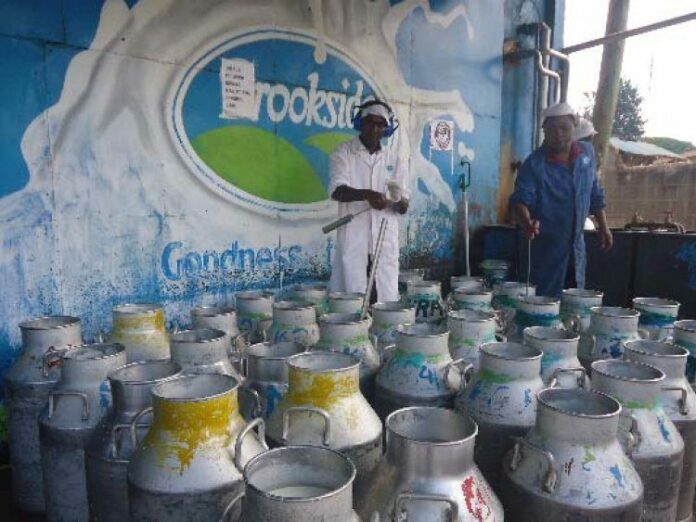Milk processor Brookside Dairy has downplayed fears of a milk surplus in the market. A day after State-owned New Kenya Co-operative Creameries (KCC) alluded to a glut, Brookside yesterday said it would continue receiving milk from all its contracted farmers.
Last year’s El Nino rains improved fodder in nearly all milk-producing regions in the country, which increased yields. In a message to farmers, Brookside, which controls about 44 per cent of the formal market, said its dry milk plant in Ruiru, which was commissioned last year, can accommodate increased supplies from its 50 milk-cooling stations.
“This project was conceived following lessons learnt from the 2010 glut. Today, however, we are happy to report that we will take in all contracted volumes from our 145,000 farmers,” said John Gethi, Brookside’s director of milk procurement.
The company’s daily raw milk intake is at nearly two million litres.
Mr Gethi added that his firm has also improved the operational capacity of raw milk bulking stations in Kitale, Eldoret, Nakuru and Kiganjo in anticipation of increased supplies.
However, its counterpart KCC has said the current milk supplies could take the country back to the 2010 scenario that saw farmers forced to pour thousands of gallons of milk into sewers as supplies stretched processors. New KCC Board Chairman Matu Wamae said milk supply has gone up, yet the regional market does not offer good business prospects.
“We are unable to export to Uganda since we have higher prices driven by higher costs of production. Our Tanzania market is now receiving supplies from South Africa, so we have a huge stock of powdered milk,” he said. The industry regulator, Kenya Dairy Board (KDB), has also warned of an impending milk glut due to the high volumes being supplied. And with the long rains season approaching, the situation could get worse.







